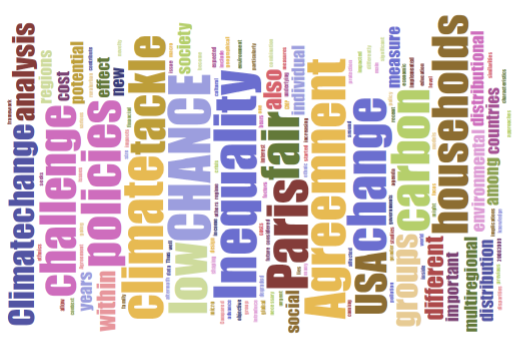- Inicio
- Investigación
- Proyectos
- Proyectos finalizados
Proyectos finalizados
ALICE
| AcceLerate Innovation in urban wastewater management for Climate changE |  |
|
|
The challenges facing society in urban wastewater management cannot be solved by any one sector alone. ALICE (AcceLerate Innovation in urban wastewater management for Climate changE) will accelerate innovation by bringing together and exchanging knowledge between the key players who can, together, address the future techno-economic, governance and societal challenges arising from climate change. It will boost international and interdisciplinary skills, as well as careers perspective of Experienced Researchers, Early Stage Researchers, and the workforce of industry, water utilities and public organizations. The results will 1) benefit water utilities, 2) support political and managerial decisions in wastewater, 3) benefit wastewater equipment manufacturers, identifying new market opportunities in the EU, 4) benefit EU citizens from the improved wastewater infrastructure, the environment and job creations. |
||
AQUACROSS
|
Knowledge, Assessment, and Management for AQUAtic Biodiversity and Ecosystem Services aCROSS EU policies |
 |
|
|
AQUACROSS seeks to expand current knowledge and foster the practical application of the ecosystem-based management (EBM) concept for all aquatic (freshwater, coastal, and marine) ecosystems (as a continuum) by contributing to the development of robust and cost-effective responses integrated management practices, and innovative business models addressing current and future changes in major drivers and pressures, integrated management practices, and innovative business models (Fig. 1). It thereby provides an unprecedented effort for seeking synergies and overcoming barriers between policy objectives, concepts, knowledge, data streams, and management approaches for freshwater, coastal, and marine ecosystems to support the timely achievement of the targets set out by the EU 2020 Biodiversity Strategy and the Strategic Plan for Biodiversity (2012-2020) adopted at COP10 of the Convention on Biological Diversity (CBD). |
||
ASSETS
| Attaining Sustainable Services from Ecosystems |  |
|
|
The ASSETS project aims to explicitly quantify the linkages between ecosystem services that affect – and are affected by – food security and nutritional health for the rural poor at the forest-agricultural interface. The project proposes to integrate a suite of complexity tools and cutting edge models with more traditional participatory assessments in the field within a modified version of the Drivers-Pressures-States-Impacts-Response methodological framework to: identify how dynamic stocks and flows of ecosystem services at the landscape scale translate to local-level nutritional diets and health; and inform policy makers on how future land use and climate change will affect both food security and the ecosystem services associated with it. |
||
BALELUR
|
Baltoroko Elur-maluta proiektua - BALELUR - The Effects of Climate Change on the K2 Area
|
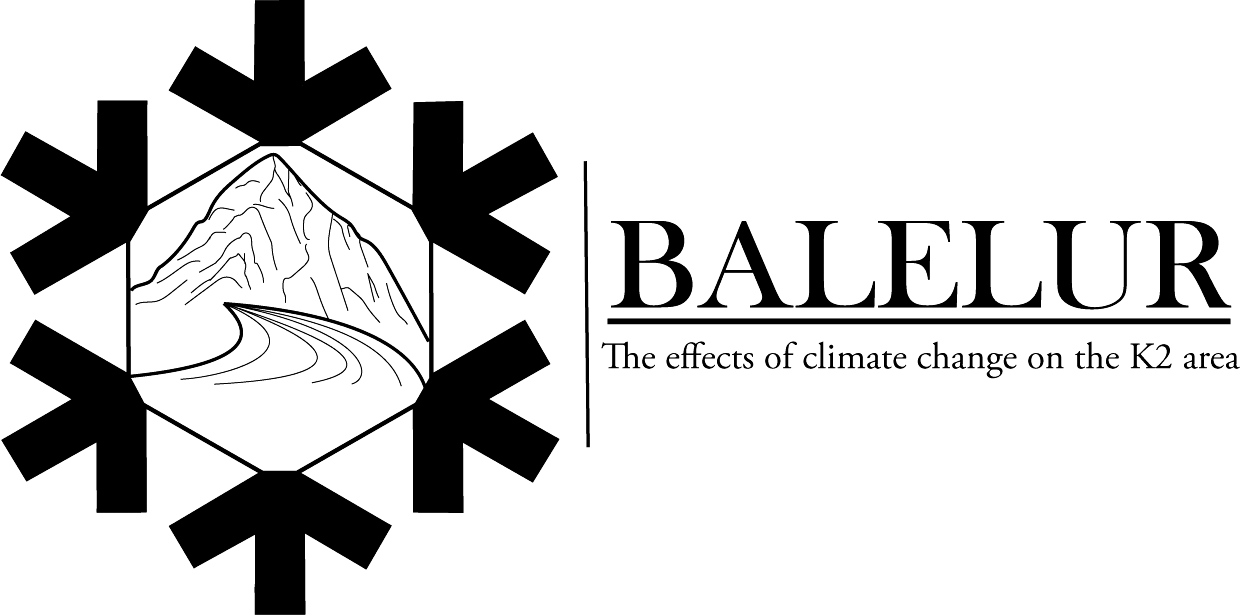 |
|
|
Mountains are among the ecosystems most affected by climate change. Still, there are many gaps in our understanding of climate change impacts on nature and human well-being, especially in the remote and vulnerable mountain regions. Climate change in mountain regions is diverse, and often extreme. Adaptation capacity of these communities is often low due to multiple barriers including lack of resources, limited education, and high exposure to natural hazards. At the same time, mountain tourism is becoming a challenge for these areas including new problems related to garbage disposal and threatening the cultural identity of communities. |
||
BASE
| Bottom-up Climate Adaptation Strategies towards a Sustainable Europe |  |
|
|
Climate change can disrupt ecological, social and economic systems, with some regions and sectors suffering significantly. Therefore, adaptation plays a paramount role in responding to climate change. Progress has been made, but there are still important obstacles. Knowledge of the benefits and costs of adaptation is sparse, unsystematic and unevenly distributed across sectors and countries. Planning suffers from substantial uncertainties in terms of precise impacts. It is also difficult to reconcile the bottom-up nature of adaptation with top-down strategic policy making on adaptation |
||
BRODISE
| BROWNFIELD Decontamination In Southern Europe |  |
|
|
BRODISE project wants to mobilize public and private purchasers and networks of cities in the field of soil decontamination, not (just) to networking and to create awareness, but to put the innovation process in action, to understand in-depth the technology state of the art and the innovation gap to be addressed by significant R&D, to structure and design a joint R&D procurement initiative, leveraging the complementarity of the consortium partners to bring together the demand in order to create a critical mass to acquire cost effective and innovative solutions, whilst creating new jobs and opportunities for business growth in Europe, with particular reference to SMEs. |
||
CARDINAL
| Entendiendo el rol funcional de los colibríes migradores en redes de interacción planta-polinizador a lo largo de un gradiente latitudinal | ||
|
El cambio global que amenaza muchos ecosistemas hace que sea crítico entender los impactos a nivel funcional que tienen distintas perturbaciones. Muchas de estas perturbaciones llevan a cambios en la composición de especies en las comunidades, a través de la extinción de especies locales o de la invasión por especies nóveles. Como consecuencia, las comunidades se reorganizan, pudiendo verse afectadas las interacciones entre distintas especies. Investigaciones previas han mostrado que en respuesta a la pérdida de una especie las demás pueden cambiar su rol funcional, es decir, estos roles serían dinámicos. Sin embargo, aún desconocemos el efecto modulador del contexto ecológico, específicamente el de la diversidad de especies, sobre la respuesta de estos roles funcionales a las perturbaciones. Este proyecto evaluará los cambios estructurales en redes de interacción planta-colibrí a lo largo de un gradiente de diversidad de especies. En particular, me centraré en los cambios en los roles funcionales de las especies individuales (especialización trófica) así como en los cambios en la estructura de la red completa (complementariedad funcional y robustez a otras perturbaciones). Me centraré en comunidades que incluyan especies de colibríes residentes y migratorias a lo largo de un gradiente de diversidad de especies, para evaluar los cambios en los roles de las especies y la estructura de la red de interacción cuando la especie migradora está presente o ausente. Esta propuesta me permitirá evaluar la importancia de la biodiversidad en el mantenimiento de las funciones de los ecosistemas frente a la pérdida de especies. Para ello, usaré un experimento natural único en el que la misma especie se elimina de manera natural de comunidades a lo largo de un gradiente de diversidad y combinaré la toma de datos en el campo con el uso de análisis de redes punteros y el riguroso análisis estadístico de los datos.
|
||
CAUSE
| Evaluación y valoración comparativa de los servicios de los ecosistemas en los sistemas agro-forestales: una metodología para la priorizacion de políticas con incidencia sobre los usos del suelo | ||
|
El objetivo de CAUSE es analizar los mecanismos biofísicos de la provisión de los servicios ecosistémicos (SE) así como las implicaciones económicas que estos pueden tener permite a nuestra sociedad equilibrar ambos lados de la ecuación “medio ambiente vs. economía”, resultando en una mejor gestión y gobernanza. Hasta ahora, las aproximaciones a la cuantificación de los SE han ignorado su compleja dinámica y su estructura ecológica multidimensional, resultando en estimaciones de provisión de SE, usos y flujos, que no ofrecen la exactitud espacial o la precisión necesaria para informar de forma eficiente a la toma de decisiones. Estas aproximaciones no permiten tampoco un análisis basado en escenarios de una forma cuantitativa y explícita espacialmente. |
||
CECILIA 2050
| Choosing Efficient Combinations of Policy Instruments for Low-carbon development and Innovation to Achieve Europe's 2050 climate targets |  |
|
|
The EU wants to transform itself to a low-carbon economy by mid-century. This transformation process will require an overhaul of the European economy, affecting a range of sectors – not only power generation, industry and transport, but also agriculture, construction or finance. Governing this transformation process is a huge challenge – stimulating the necessary innovations, ensuring public support, encouraging the needed investments, creating the right infrastructure, and avoiding lock-in into old, carbon-intensive technologies.
To manage this transformation, a range of policy instruments is required. The existing mix of climate policy instruments needs to be scaled up drastically to initiate the necessary changes. But as the scale and scope of instruments increases, it becomes more important to understand and to manage their interaction, as do constraints on the political, legal and administrative feasibility. Policy solutions that have worked well in an economic niche are not necessarily suited to guide economic development on a broad scale; instruments that have co-existed well on a small scale may conflict when scaled up to an economywide level. To evaluate their efficiency and effectiveness, policy instruments cannot be viewed in isolation; understanding and managing their interaction becomes key. |
||
|
|
||
|
|
||
CHANCE
|
Climate cHange
mitigAtioN poliCies and Equality: distributional implications for |
||
|
The overarching goal of CHANCE is to contribute to bridging the gap between economic and social goals, through enhancing our understanding of how to foster socially fair and economically efficient climate mitigation policies. CHANCE will be implemented through a novel approach integrating Computable General Equilibrium and Microsimulation models. |
||
CLIC
|
AXA Postdoctoral Fellowship Marta Olazabal - Can we measure the effectiveness of public investments in urban climate resilience? |
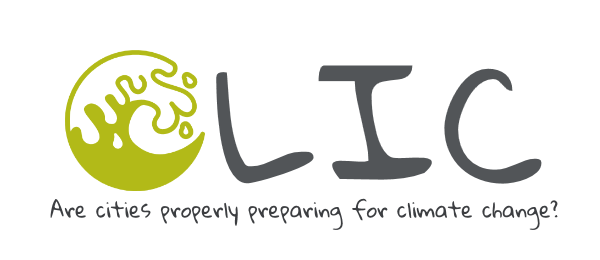 |
|
|
After the Paris agreement, the need to collect more information about current efforts and progress towards adaptation is patent. Because of this, understanding the strengths and weaknesses of current adaptation policies is critical for public and private decision-making so that efforts can be well targeted, public funds and private investments can be effectively allocated, best-practices can be transferred and ultimately, adaptation science and practice can advance. When it comes to cities, local climate adaptation planning is relatively new. Earliest local adaptation plans began emerging about ten years ago and are an increasingly important component of the international climate policy agenda. It turns therefore critical to evaluate if and how local authorities are acting to adapt and whether local climate adaptation plans are on track to effectively reduce future risks. |
||
CLIMAECON
Políticas climáticas y transición a una economía baja en carbono |
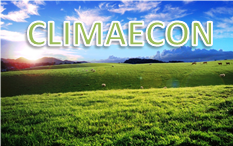 |
|
|
El principal objetivo de este proyecto de investigación es contribuir al avance del conocimiento científico para promover la reducción de emisiones de carbono y favorecer la transición a una economía baja en carbono. Este proyecto está orientado, específicamente, a adquirir nuevos conocimientos que permitan avanzar en la resolución del Reto 5 ("Acción sobre el cambio climático y eficiencia en la utilización de recursos y materias primas") identificado en la Estrategia Española de Ciencia y Tecnología y de Innovación. |
||
CLIMAECON2
| Strengthening low carbon transition policies - Fortalecimiento de las políticas bajas de transición de carbono | ||
|
The main objective of this research project is to advance scientific knowledge regarding the implementation and design of climate and energy policies to promote a transition to a low-carbon, sustainable economy efficiently and equitatively. This objective is in line with challenge 5: "Acción sobre el cambio climático y eficiencia en la utilización de recursos y materias primas” identified in the "Estrategia Española de Ciencia y Tecnología y de Innovación". |
||
CLOCK
| Climate Adaptation To Shifting Stocks | 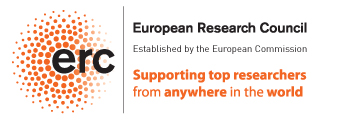 |
|
|
Management of marine fisheries is still far from incorporating adaptation to climate change, even though global stocks are heavily overexploited and climate change is adding additional pressure to the resource. In fact, there is growing evidence that current fisheries management systems may no longer be effective under climate change, and this will translate into both ecological and socioeconomic impacts. This research project argues that the combination of fisheries management science and socio-ecological systems thinking is necessary in order to advance in fisheries adaptation to climate change. |
||
COACCH
|
CO-designing the Assessment of Climate CHange costs |
||
|
COACCH will develop an innovative science-practice and integrated approach to co-design and co-deliver an improved downscaled assessment of the risks and costs of climate change in Europe, working with end users from research, business, investment, and policy making communities throughout the project. COACCH will advance the evidence base on complex climate change impact chains, assessing their market, non-market, macroeconomic and social consequences in the EU. |
||
COBELOC
| Consumer Behaviour for a Low Carbon Economy | ||
|
Como objetivo central del proyecto, BC3 se está centrando en comprender los factores que impulsan los patrones de consumo. Lo que se busca es mejorar las políticas diseñadas y puestas en práctica para promover patrones de consumo más sostenibles y bajos en carbono. BC3 se está centrando especialmente en políticas diseñadas para mejorar la eficiencia energética en los hogares. |
||
COMPLEX
| Knowledge Based Climate Mitigation Systems for a Low Carbon Economy |  |
|
|
The science of complex systems distinguishes linear from non-linear dynamics. Simpler systems can often be satisfactory described by linear models, but complex systems require non-linear models that can capture more of the characteristics of such systems, such as thresholds, feedback loops, avalanche effects, and irreversibility. Linear systems can be validated by aligning models to the past and using the model to predict the future. Non-linear systems, however, are often time-asymmetric - they can be explained with the wisdom of hindsight, but are not always predictable. For example, systems may respond sharply to minor perturbations, and the quality of this response is a measure of the system resilience. In practice, non-linear dynamics are significant both at the micro-scale of small history and at the macro-scale of deep time. The brilliant young scientist, for example, may experience a series of epiphanies that change his/her understanding and behaviour in an unpredictable and irreversible way. The scientific community as a whole may experience an innovation-cascade that has a similar effect on a much larger scale.
|
||
Comprar Champix en España
Comprar Champix en España: Tu Camino Hacia una Vida Sin Tabaco
El tabaquismo es uno de los mayores desafíos de salud en el mundo, y España no es una excepción. Según el Ministerio de Sanidad, aproximadamente el 22% de la población española fuma, lo que significa que muchas personas están en riesgo de enfermedades relacionadas con el tabaco. Champix, un medicamento con el ingrediente activo vareniclina, ha demostrado ser una ayuda efectiva para dejar de fumar. En este artículo, exploraremos el trasfondo científico de Champix, su eficacia y cómo puedes acceder a este medicamento en España.
Comprar Tadalafilo 20 mg sin receta en España
Comparativa de Costes Tadalafil
| Presentación | Precio Medio (€) |
|---|---|
| Cialis 20 mg (4 comp.) | 45-50 |
| Genérico 20 mg (4 comp.) | 35-40 |
| Cialis 5 mg (28 comp.) | 55-60 |
| Genérico 5 mg (28 comp.) | 45-50 |
Comprar Vardenafilo 20 mg sin receta en España. Levitra Generico precio
| Comprar Vardenafilo 20 mg |  |
|||||||||||
|
Vardenafilo 10/20 mg en la Práctica Clínica: Una Revisión Exhaustiva sobre Eficacia, Accesibilidad y Consideraciones Terapéuticas en el Contexto Español:Comparativa de Costes Vardenafilo
|
||||||||||||
CONSEED
| CONsumer Energy Efficiency Decision Making | 
|
|
|
Consumers do not minimize the total costs of their energy-consuming investments due to a range of market and non-market based failures. This is known as the ‘Energy Efficiency Gap’. To reduce the gap and provide customers with energy consumption information, the EU has mandated that electrical appliances, cars and buildings carry information to indicate their energy consumption. |
||
CORaHE
| Design and construction of an X-Y-Z-motorized head to perform deep-UV Raman measurements at microscopic level in cold environments from -5 to -30 ºC | ||
|
The objective of this project is to design and provide the innovative CORaHE (COld Raman Head) sensor for deep-UV Raman spectroscopy, to operate under cold environments between -30 and ?5 °C, performing non-destructive micro-Raman measurements on a portable device, discarding the need of cryostages and allowing direct microscopic measuring of the original cold samples without any limitation in size. |
||
Crecimiento verde en Bizkaia
La Fundación BBK Fundazioa tiene entre sus objetivos fomentar y desarrollar la cultura, difundir el conocimiento y la formación de las personas y en 2018 decidió apoyar a la Universidad del País Vasco (UPV/EHU) y Basque Centre for Climate Change (BC3) en el marco del Programa Low Carbon establecido entre ambas instituciones.
DECCMA
|
DEltas, vulnerability and Climate Change; Migration as an Adaptation |
 |
|
|
With their large and often poor populations in low-lying areas, deltas have long been seen as highly vulnerable to climate change and non-climate drivers with, in the most extreme, large-scale displacement of people being the result. Migration is a complex process which is already occurring in all deltas, largely independent of climate change. Most research on deltas and migration tends to focus on individual system elements and issues rather than taking a systems-level perspective. This fails to consider the wider consequences of climate change and the interdependence between these phenomena and people’s behaviour. In contrast to previous research, this programme of research will take a systemic and multi-scale analytical perspective to understand gendered vulnerability and adaptation in deltas under a changing climate by analysing four contrasting populous delta systems in South Asia and Africa where there is significant potential for migration. |
||
ECONADAPT
| Economics of climate change adaptation in Europe |  |
|
|
The aim of the ECONADAPT project is to provide user-orientated methodologies and evidence relating to economic appraisal criteria to inform the choice of adaptation actions using analysis that incorporates cross-scale governance under conditions of uncertainty. A critical theme of the proposal is therefore to support the application of adaptation economics in the period following the publication of the EU’s 2013 Adaptation Strategy, focusing on key decision areas that need enhanced economic information, and on the key users of such information. |
||
ENABLE.EU
| Enabling the Energy Union through understanding the drivers of individual and collective energy choices in Europe | 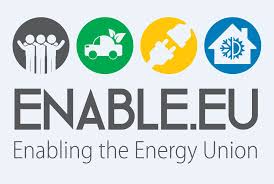
|
|
|
The Energy Union Framework Strategy laid out on 25 February 2015 has embraced a citizens-oriented energy transition based on a low-carbon transformation of the energy system. The success of the energy transition pillar in the Energy Union will hinge upon the social acceptability of the necessary reforms and on the public engagement in conceptualizing, planning, and implementing low carbon energy transitions. The ENABLE.EU project will aim to define the key determinants of individual and collective energy choices in three key consumption areas - transportation, heating & cooling, and electricity – and in the shift to presumption (users-led initiatives of decentralised energy production and trade). |
||
ENERPOLIS
| ENERgy Efficiency POLIcies in Spain: analysing consumer choices |  |
|
|
In order to combat climate change, several policies have been used in Spain to reduce the carbon intensity of the economy. However, household behavioural change has not received enough priority by the international climate debate. For these, more research is needed to keep the 1.5ºC target within reach. ENERPOLIS seeks to understand the effectiveness of market based (energy efficiency labels) and command and control instruments (Low emission zones) in Spain. This will be done through analysing the willingness to pay for energy efficiency of household appliances and study the effectiveness of the Madrid Low emission zone. The project will allow to provide useful recommendations to improve the design of policies influencing consumers’ choices of energy efficient technologies. Specifically, it will allow us to provide insights on the effectiveness of regulatory and economic instruments in the transition towards an energy efficient economy. |
||
EQUIVAL
| Nurturing a Shift towards Equitable Valuation of Nature in the Anthropocene |  |
|
|
In order to secure more ethical and more effective approaches for nature conservation, social equity needs to be integrated as a key aspect in environmental governance. This involves recognizing and creating transparent and participatory mechanisms that can explicitly include the voices of the diversity of stakes and worldviews about human-nature relations. This necessarily requires that valuation of biodiversity (a shorthand for nature or any biotic system as seen by modern science, or other knowledge systems) is also an equitable process. Equitable valuation requires: recognition of diversity of worldviews on human-nature relations, guaranteeing transparent participation of stakeholders, and being mindful of the distribution of benefits and burdens of valuation-based decisions. |
||
ESPA-Frontiers
| Landscapes in transition: synthesising knowledge on trade-offs between land use changes, ecosystem services and wellbeing. |
 |
|
|
Agricultural intensification is a dominant environment and development policy intervention in landscapes characterised by shifting cultivation and/or by a mosaic of farm and forest lands. And yet recent studies from ESPA and beyond are beginning to show that the outcomes of such interventions can frequently fail in their intentions to alleviate poverty and reduce losses of forests and biodiversity. The main objective of this research is to improve our understanding of the effects of agricultural intensification, with a view to better understanding how agricultural policy and interventions can be more sustainable and pro-poor. |
||
ESPERA
| La Equidad Social en los Pagos por Servicios Ambientales (PSA): Una Perspectiva Socio- Ecológica | 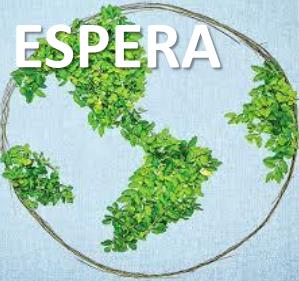 |
|
|
El objetivo principal de ESPERA es contribuir al conocimiento del impacto de los PSA (Pagos por Servicios Ambientales o ecosistémicos) sobre la equidad social y sus interrelaciones (trade-offs) con la efectividad ambiental y la eficiencia económica, desde la perspectiva socio-ecológica de los servicios ecosistémicos. ESPERA avanzará en el desarrollo de un marco conceptual siguiendo el trabajo de Pascual et al (2010; 2014) mediante la introducción de las relaciones de poder entre los actores de los PSA, una variable normalmente obviada en la literatura sobre PSA). |
||
EU-TiVA
| European Union Trade in Value Added, Jobs and Greenhouse Gases emissions | 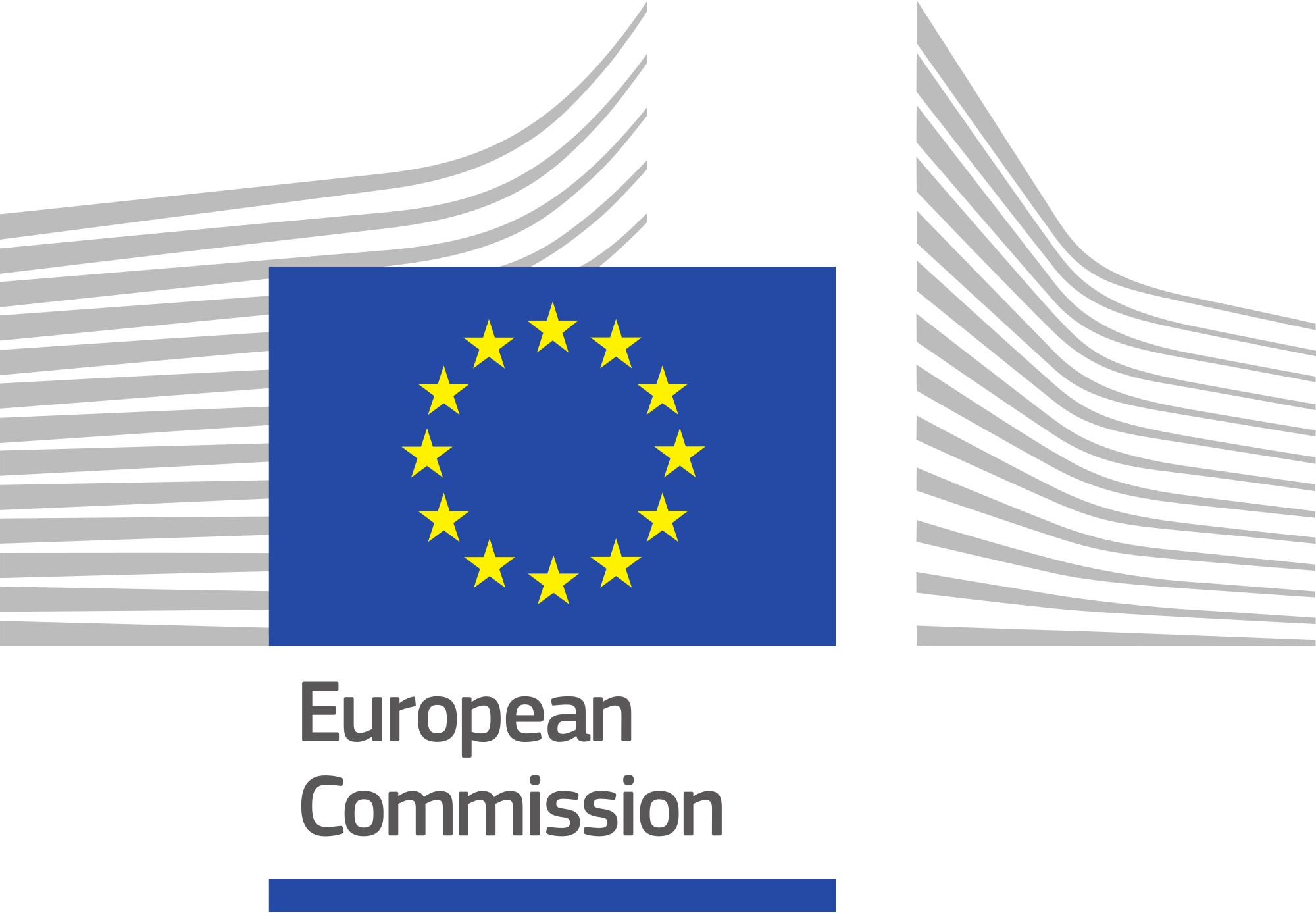 |
|
|
The objectives of this contract are: -Objective 1: Produce a modified version of the existing Trade-SCAN tool package for the analysis of income, GHG emissions and employment effects of consumption, investment and gross exports of countries.). -Objective 2: Produce one pocketbook with three small volumes titled: "EU Trade in Value Added, Employment and GHG Emissions"
|
||
EUROFLOW
| A EUROpean training and research network for environmental FLOW management in river basins |  |
|
|
A EUROpean training and research network for environmental FLOW management in river basins. |
||
Finasterida 1mg precio españa
Finasteride precio genérico
La alopecia androgénica afecta al 50% de los hombres españoles mayores de 50 años. En este contexto, la Finasterida 1mg se ha consolidado como el tratamiento farmacológico más prescrito. Pero ¿qué hay detrás de este fármaco? ¿Es seguro comprarlo en Amazon? ¿Por qué el Finasteride 1mg CINFA precio genera tanta controversia? En esta guía de 7,500 palabras, desentrañamos todo lo que necesitas saber, desde su mecanismo de acción hasta cómo acceder al finasteride precio genérico.
FLAGSHIP
| Forward Looking Analysis of Grand Societal cHallenges and Innovative Policies |  |
|
|
FLAGSHIP is an FP7 project, funded by the European Commission (DG RESEARCH) under the “Socio-Economic Sciences and Humanities” theme, with the aim of developing a “Forward Looking Analysis of Grand Societal Challenges and Innovative Policies”. The FLAGSHIP project thus aims at driving change, supporting the policy shift from adapting to changes through short-term policy responses, towards anticipating, welcoming and managing changes properly.
|
||
Fluconazol 150 mg comprar sin receta en Espana
Comparativa de Costes Fluconazol
| Presentación | Precio Medio (€) |
|---|---|
| Diflucan 200 mg (4 comp.) | 55-60 |
| Genérico Fluconazol 150 mg (4 comp.) | 35-40 |
| Diflucan 200 mg (28 comp.) | 60-75 |
| Genérico Vardenafilo 150 mg (28 comp.) | 35-50 |
GOVERNADAPT
| Governance of climate change adaptation and risk management | 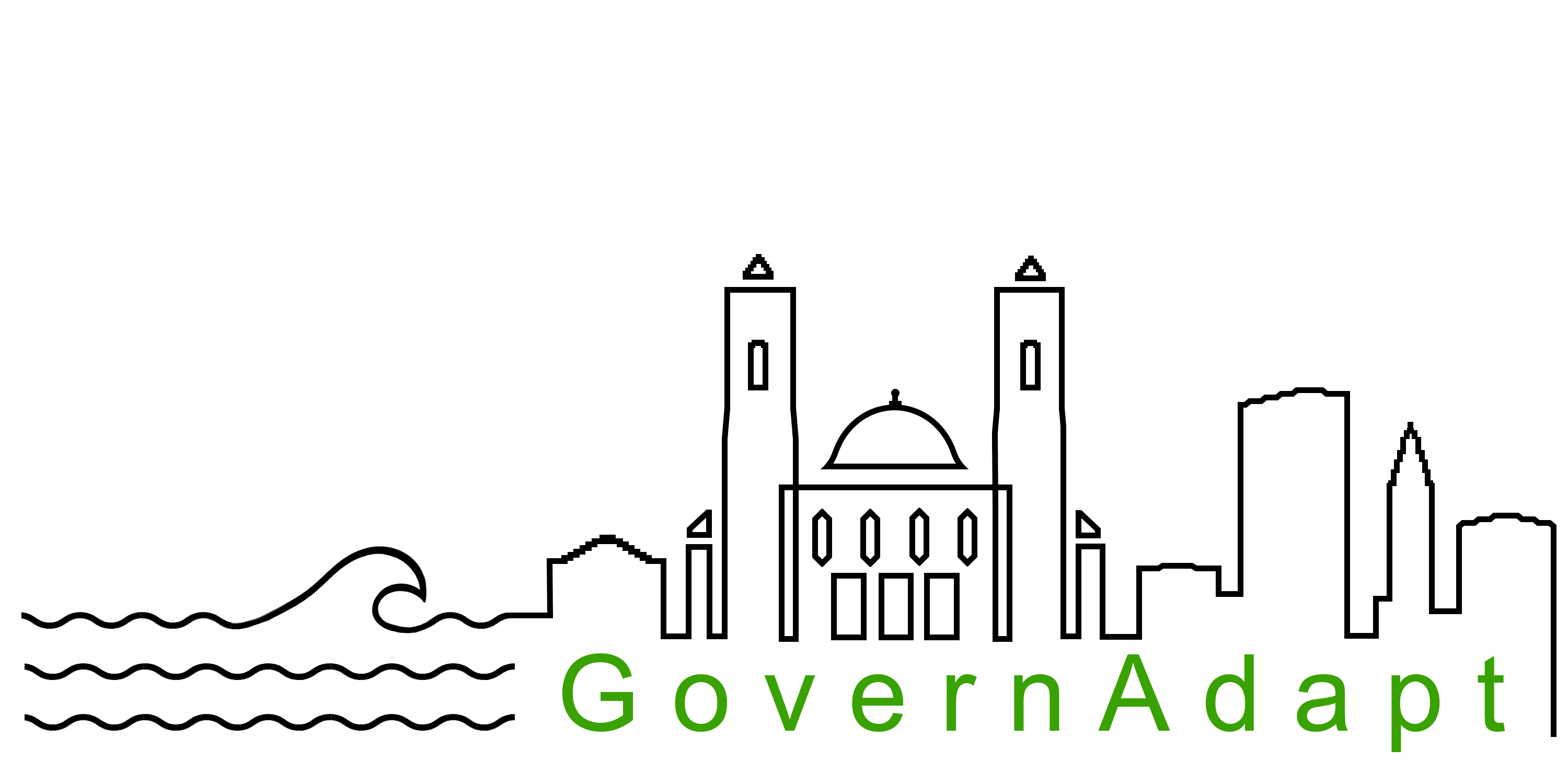 |
|
|
Governadapt is a 1-year pilot project funded by the Basque Cooperation Agency whose main goal is assessing climate-induced coastal risks in the city of Dakar and determining, in a co-creation process with stakeholders, acceptable levels of risk that will guide the identification of different adaptation pathways. |
||
Grupo operativo de reducción de GEI
| Grupo operativo para la reducción de gases de efecto invernadero en el sector porcino | 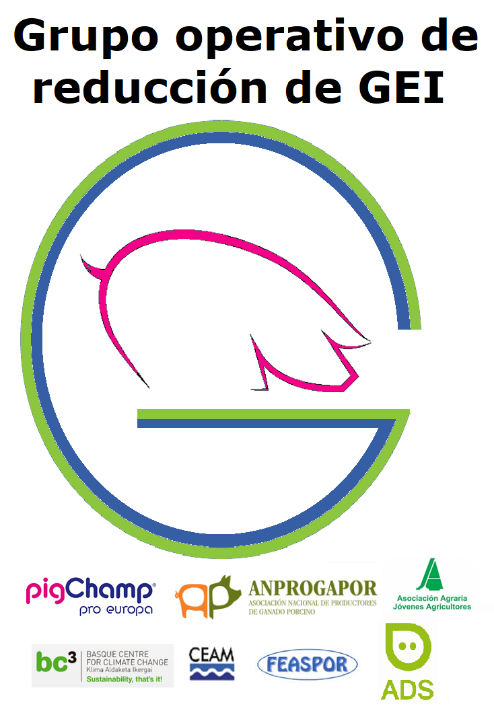 |
|
|
La reducción de las emisiones de GEI en Europa y, por lo tanto, en España, es ya una realidad debido a los compromisos internacionales adquiridos, a la sensibilización de la sociedad y a la necesidad de alcanzar un sistema productivo más limpio y respetuoso con el medioambiente. Por lo tanto, la implantación de técnicas de reducción de GEI en las explotaciones porcinas es inevitable y, lo que se pretende con este proyecto, es ofertar a los agentes implicados en el diseño y manejo de las explotaciones porcinas un amplio abanico de tecnologías disponibles que, siendo eficaces medioambientalmente, sean además viables técnica y económicamente para que no solo no pongan en peligro la rentabilidad del sector porcino, sino que ayuden a mejorar los rendimientos productivos y la imagen de las granjas y del mundo rural. |
||
HAYEDOS
| Evaluando el papel de la diversidad del suelo en el mantenimiento de la funcionalidad de los hayedos en un escenario de cambio climático | ||
|
El calentamiento de la superficie terrestre, junto con los cambios en los regímenes de precipitación, incrementan la frecuencia e intensidad de episodios de sequía, debido al cambio climático. En las últimas décadas ha aumentado el riesgo de pérdida de funcionalidad de los ecosistemas debido a la recurrencia de episodios de sequía, incluso para regiones donde la disponibilidad hídrica no se presuponía limitante. Es el caso de los bosques de las regiones templadas, como los hayedos europeos (Fagus sylvatica), donde se han observado claros signos de decaimiento en los últimos años en los límites altitudinales y latitudinales inferiores de su distribución, es decir en las áreas expuestas a temperaturas más elevadas y a mayor déficit hídrico. |
||
IBERYCA
| The role of plant-microbiota interactions in the resilience and collapse of mediterranean forest of holm-oaks | ||
|
Despite being a species historically adapted to Mediterranean drought conditions, Holm-oak (Q ilex subp Ballota) has shown clear signs of vulnerability in recent years reflected in an incipient process of defoliation and mortality. Given the urgent need to promote the conservation of this species of enormous ecological and socioeconomic importance in the Iberian Peninsula, it is a priority to improve our current understanding on the mechanisms and agents involved in health loss and vulnerability to extreme droughts and/or pathogenic attacks (eg Phytophthora cinnamomi). In this respect, the development of new "omics" has allowed to advance in the exploration of territories so far unexplored, such as the multifunctional role of the microbiota, the most diverse yet unknown ecosystem community, and its relation to physiological health. The project IBERYCA brings together an international and multidisciplinary team of experts (microbial ecologists, modelers, ecophysiologists, phytopathologists and biogeochemists) that will use the latest generation of "omics" techniques (metabarcoding and metabolomics) to deepen the multifunctional role of the microbiota (Prokaryotes, archaeas and fungi) in the health of Holm-oaks and their resilience to the increasing incidence of, e.g. extreme summer droughts and/or pathogen attacks.
|
||
iMechPro
|
Ice Microstructure and Mechanics, and their Implications for the Integrity of Climate Proxies in Ice Cores Microestructura y Mecánica del Hielo y sus implicaciones para la integridad de los Proxies Climáticos en Testigos de Hielo
|
||
|
Glaciers and ice sheets are essential elements of Earths climate system. Their interactions with the environment can have dramatic implications for life on the globe, as demonstrated by their roles in sea-level rise and global warming. Such environmental interactions remain recorded in the ice microstructure, in form of impurities like air bubbles, particles, and other climate proxies buried by subsequent snowfalls. It happens, however, that glaciers and ice sheets flow. |
||
Interreg ALICE
| Improving the management of Atlantic landscapes: accouting for bIodiversity and ecosystem services |  |
|
|
An integrative, landscape management approach incorporating socioeconomic and climate change scenarios is critical to ensure the delivery of benefits from investments in Blue and Green Infrastructures to meet the 2020 EU biodiversity targets and sustainable development in the Atlantic Region. The ALICE project will develop a comprehensive package of new methods, tools and procedures to identify economic and social barriers to the delivery of benefits from Blue and Green Infrastructures implementation and to improve the characterization of biodiversity and the valuation of Ecosystem Services across four Atlantic case studies (Portugal, Spain, France and UK-Ireland). ALICE will focus on participative learning and modelling by engaging stakeholders and policy makers to identify best Blue and Green Infrastructures solutions.
|
||
ISAGE
| Innovation for Sustainable Sheep and Goat Production in Europe | 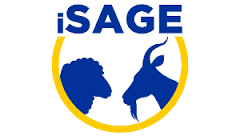 |
|
|
iSAGE will enhance the sustainability, competitiveness and resilience of the European Sheep and Goat sectors through collaboration between industry and research. iSAGE have a powerful consortium with 18 industry representatives from various EU production systems and socio-economic contexts. The sheep and goat sector will be investigated because it is sensitive to general socio-economic, demographic, and ecological and market challenges; nevertheless, the project’s approach and results will be made available and disseminated to other EU livestock industries. Therefore, at the core of iSAGE is a participatory approach centered on a multi-actor internal and external communication (WP) to build the project from the farmer level. |
||
JRS
| Integrative modelling to understand pollination services across agricultural landscapes | ||
|
Pollinator declines raise concern globally given the dependence of >70% of crops on pollinators. In South Africa (SA), pollination limitation is widespread, already documented for different crops. Improving flower visitation by wild pollinators could therefore substantially decrease yield gaps, while simultaneously delivering the conservation of important biodiversity. However, currently we lack basic knowledge on (i) the identity of the wild pollinator species that visit different crops, (ii) their efficiency, (iii) their responses to landscape characteristics and (iv) the spatial match or mismatch between source areas of pollinators and croplands. This stems from knowledge gaps in our taxonomic system, lack of empirical tests of pollination efficiencies and responses to land use, and the absence of models designed specifically for South Africa (SA) settings. |
||
KONTRAE
| Emergencia y diseminación de resistencias a los antibióticos: Vínculos entre salud humana, ganadería, alimentación y medio ambiente | ||
|
Según la Organización Mundial de la Salud (OMS), las resistencias a los antibióticos son actualmente una de las mayores amenazas para la salud humana, la sostenibilidad económica de los sistemas sanitarios, la seguridad alimentaria y, en general, el desarrollo socioeconómico. En la Comunidad Autónoma del País Vasco (CAPV), al igual que en el resto del mundo, este problema está aumentando de forma preocupante, como se refleja en la creciente detección en nuestros hospitales de infecciones causadas por bacterias multirresistentes o panresistentes, con el consiguiente aumento de fallecimientos, costes sanitarios (exempli gratia, tratamientos más costosos, estancias más largas en hospitales, tratamientos crónicos derivados de las secuelas médicas) y pérdidas de productividad para las empresas (e.g., bajas laborales).
|
||
MALCON
| Modelling and Analysis of Low Carbon transitiONs Modelado y análisis de transiciones bajas en carbono | ||
|
The Modelling and Analysis of Low Carbon transitiONs (MALCON) project is the continuation of the research carried out by the principal investigator and his team on environmental-economic modelling, low carbon transitions and international trade. This research activity is organised in two different research lines: RL1. Analysis of global supply chains, and RL2. Modelling the transition towards a low carbon economy. The MALCON project is framed in the Societal Challenges 3 (Secure, Clean and Efficient Energy) and 5 Climate Action, Environment, Resource Efficiency and Raw Materials of the H2020 programme (objectives 13th and 15th of the Spanish Strategy of Science, Technology and Innovation). |
||
MANURE
|
Gestión de deyecciones en sistemas
productivos de vacuno de leche de la cornisa cantábrica. De la explotación al
territorio: eficiencia del uso de nutrientes, mitigación de gases de efecto
invernadero y reducción de la huella de carbono. |
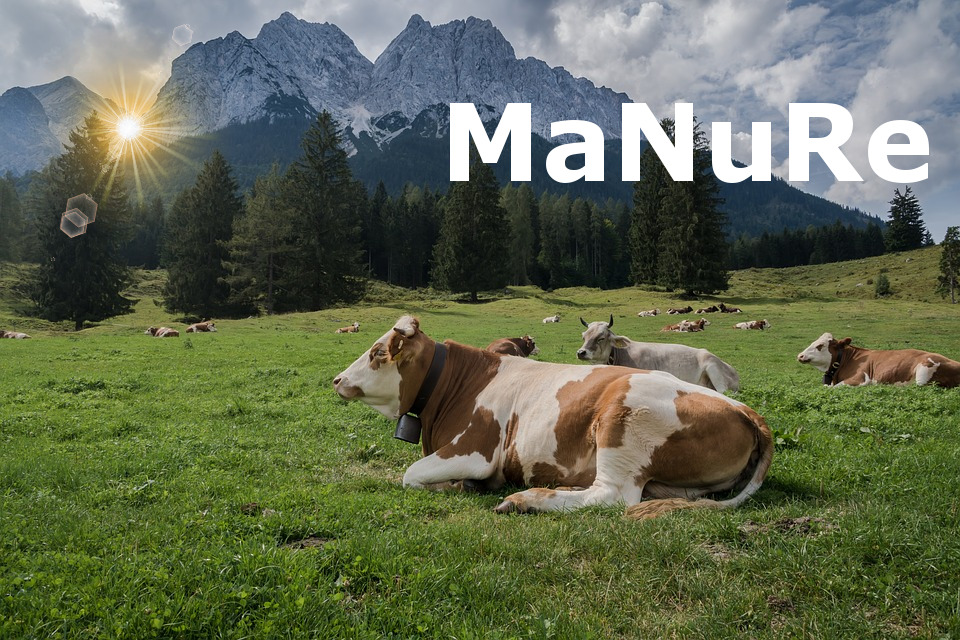 |
|
|
BC3 lidera el subproyecto 5 del proyecto MANURE, titulado “Gestión de deyecciones en sistemas productivos de vacuno de leche de la cornisa cantábrica. De la explotación al territorio: eficiencia del uso de nutrientes, mitigación de gases de efecto invernadero y reducción de la huella de carbono”
|
||
MASBIO
|
 |
||
|
Rural areas of Mediterranean watersheds face enormous environmental challenges in managing and responding to water scarcity, reducing erosion, and conserving their rich biodiversity. These problems have been aggravated by practices of mismanagement of the territory. In this context, MASBIO is framed with the objective of proposing actions for sustainable land management at the level of the river basin, for the Mijares River. Sustainable land management practices are adaptation actions that generate synergies between the hydrosphere, atmosphere and biosphere, and promote sustainable rural development. MASBIO proposes to propose such proposals as a result of scientific research, the use of existing traditional and administrative knowledge for the generation of new knowledge and flexible and open access tools, including the use of artificial intelligence and the active involvement of key actors in the basin. |
|||
NEREA5
| Modelización de las emisiones de N y C usando el DNDC para obtención de factores de emission dentro de diferentes prácticas agrícolas | ||
|
Una de las principales prioridades para la agricultura del futuro, según la Commission on Sustainable Agriculture and Climate Change (2011), es promover la intensificación de la producción agrícola reduciendo impactos ambientales como las emisiones gaseosas (N2O, CO2, CH4, NOx y NH3). Para poder actuar en esta línea a través de prácticas agrícolas es necesario entender bien la dinámica del N y su relación con el ciclo del C y agua en sistemas agrarios. |
||
OPTIBARN
|
Optimised animal specific barn climatisation facing temperature rise and increased climate variability |
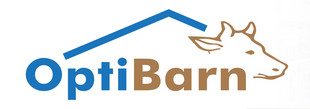 |
|
|
OptiBarn tends to develop region-specific, sustainable adaptation strategies for dairy housing, focusing on an optimised climatisation of naturally ventilated buildings (NVB). Naturally ventilated buildings are particularly vulnerable to climate change since the indoor climate strongly depends on the extremes and variability of the outdoor climate. Without sound adaptation strategies, increased climate variability will result in a sub-optimal thermal environment in many livestock buildings impairing production and welfare of animals. |
||
PAEE
| Politicas de Apoyo a la eficiencia enérgetica: impuestos vs subvenciones | ||
|
El objetivo principal de este proyecto se centra en la comprensión de los factores que explican las pautas de consumo desde la óptica de mejorar las políticas para la promoción de hábitos de consumo más sostenible y bajos en carbono; con una atención especial a las políticas de promoción de la eficiencia energética en el consumo residencial. Para ello se procederá a analizar las siguientes cuestiones: el papel de las eco-etiquetas en las decisiones del consumidor, el sobreprecio que actualmente se paga en el mercado por bienes ambientalmente superiores y la sensibilidad (elasticidad precio de la demanda) de sustitutivos cercanos ambientalmente superiores y bajos en carbono. Toda esta información nutrirá el análisis de los instrumentos de política diseñados para favorecer cambios en las pautas de consumo hacia hábitos más sostenibles. En este contexto se analizarán nuevos instrumentos de política de acuerdo a las lecciones aprendidas a lo largo del proyecto. El esfuerzo se centrara en uno de los tres grupos de bienes que representan gran parte de la huella ecológica y de carbono en el consumo residencial: los electrodomésticos; como indicadores del consumo de energía en el hogar. |
||
PROCESA
|
Evaluación del PROgreso de las Ciudades ESpañolas hacia la Adaptación
|
 |
|
|
El objetivo del proyecto PROCESA (Evaluación del PROgreso de las Ciudades ESpañolas hacia la Adaptación), que cuenta con el apoyo de la Fundación Biodiversidad, del Ministerio para la Transición Ecológica, es precisamente analizar el progreso en materia de adaptación al cambio climático en las principales ciudades españolas, a través de la evalucación de sus planes y políticas de adaptación. |
||
PURGE
| Public health impacts in URban environments of Greenhouse gas Emissions reduction strategies | 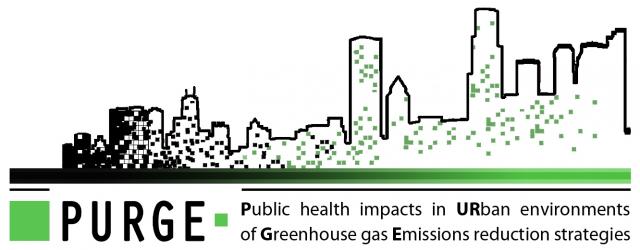 |
|
|
The project will examine the health impacts of greenhouse gas (GHG) reduction policies in urban settings inEurope, China and India, using case studies of 3-4 large urban centres and three smaller urban centres. Sets of realistic interventions will be proposed, tailored to local needs, to meet published abatement goals for GHG Emissions for 2020, 2030 and 2050. Mitigation actions will be defined in four main sectors: power generation/industry, household energy, transport and food and agriculture. The chief pathways by which such measures influence health will be described, and models developed to quantify changes in health-related ‘exposures’ and health behaviours. Models will include ones relating to outdoor air pollution, indoor air quality and temperature, physical activity, dietary intake, road injury risks and selected other exposures.
|
||
REBECOM
| Estimación del tiempo de recuperación de bosques templados tras impactos antropogénicos históricos a lo largo de un gradiente de complejidad |  |
|
|
Para reducir la acelerada perdida de diversidad, funciones y servicios de los ecosistemas, se han iniciado multitud de estrategias y programas de restauración por todo el mundo impulsados por las iniciativas de la Convención sobre la Diversidad Biológica o la Comisión Europea. Sin embargo, se ha comprobado en humedales, ríos y otros hábitats que los ecosistemas restaurados son menos funcionales y son menos diversos que los conservados (relativamente no perturbados) durante largos periodos de tiempo (>100 años). Esto puede deberse a muchos factores, pero está relacionado con el tiempo que tardan los ecosistemas en recuperarse completamente y con los parámetros usados para medir el éxito de la restauración. En este proyecto, medimos la evolución de algunas interacciones a lo largo de una cronosecuencia de 500 años para entender el proceso de recuperación de la estructura profunda de los ecosistemas. |
||
REMEDISOST
| Diseño de una Metodología para La Evaluación de la Sostenibilidad de Planes de Remediación de Suelos | 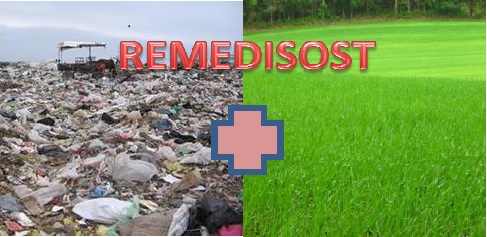 |
|
|
El proyecto REMEDISOST pretende desarrollar una metodología rigurosa, fiable y robusta que consiga realizar un análisis y evaluación de la sostenibilidad de los distintos planes de remediación de suelos contaminados que, desde el punto de vista técnico, permitan recuperar un suelo desde una situación inicial de contaminación hasta una situación final acorde con el uso que se pretende dar al suelo. |
||
RESH2O
| RESTORATION OF ENVIRONMENTAL SERVICES AND WATER CYCLE IN THE CONTEXT OF ADAPTATION TO CLIMATE CHANGE IN MEDITERRANEAN BASINS | 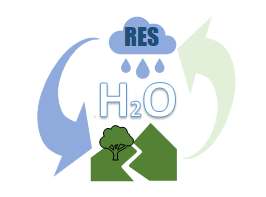 |
|
|
There is a willingness to address the restoration of one of its basins (the Mijares River basin) by the Autonomous Government of the Valencian Community, the physical scope, atmospheric and eco-physiological processes and the role they could play are known, while having extensive experience in forest restoration (particularly post-fire). These areas have undergone a cycle of feedback to drought and desertification as a result of the elimination of forest vegetation cover and the drying up of coastal marshes associated with the historical succession of complex territorial management systems. In order to recover the water cycle, it is necessary to approach the design of ecological restoration processes in a participatory manner with all the actors involved in the design of the actions. Advanced modelling techniques and the ARIES technology platform for flexible model integration are used. |
||
RESIN
| Climate Resilient Cities and Infrastructures | 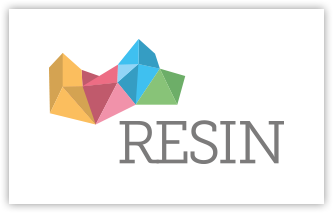 |
|
|
With most of its population and capital goods concentrated in urban areas, cities are key to the European economy. One of the major challenges cities face are more frequent extreme weather events due to climate change. The current diversity of approaches and methods available for cities developing an adaptation strategy limits the comparability between cities of vulnerabilities, adaptation options, infrastructures, etc., and, as a result, the resilience capability. The lack of standardized information to prioritize and select appropriate adaptation options restricts the exchange of experiences between cities. |
||
SABER CULTURAL
| SAfeguarding Biodiversity and Ecosystem seRvices by integrating CULTURAL values in freshwater management: learning from Maori | ||
|
Freshwater ecosystems are essential to people´s economic, cultural and social wellbeing, yet are still one of the most seriously threatened ecosystems on the planet. This conflict is reflected in political regulations that ask to halt the loss of, restore and safeguard freshwaters, their biodiversity and the ecosystem services they provide. Ecosystem-Based Management (EBM), a holistic approach advocated to help doing so, involves an overarching regulatory framework and local solutions with trade-offs and compromises - factors that make decision processes complex and easily co-opted. |
||
SEES
|
El Papel de la Equidad Social en la Gobernanza de la Naturaleza desde una Perspectiva Socio-Ecológica
The role of Social Equity in the Governance of Nature: A Social-Ecological approach |

|
|||
|
SEES tiene como finalidad contribuir al conocimiento y ayudar a los tomadores de decisiones y agentes involucrados en la conservación de la naturaleza para gestionar adecuadamente la interrelación entre la conservación y la equidad social desde un enfoque socio-ecológico, y por tanto más allá de una perspectiva biofísica, tal y como normalmente se analizan los instrumentos de la conservación. El objetivo general del proyecto es analizar empíricamente los impactos de equidad en los programas de pagos por servicios ambientales (PSA) como sistema de gobernanza de la conservación. Este objetivo surge del escaso énfasis conceptual y empírico del marco de los servicios de los ecosistemas sobre la equidad y los instrumentos de conservación (distribución de costes y beneficios, reconocimiento de valores de distintos actores y los procedimientos participativos). El marco conceptual en el que se basa la investigación parte de varios estudios publicados recientemente (p.e., Pascual et al 2010, Corbera y Pascual 2012, Narloch et al 2013 y Pascual et al 2014). Se realizarán casos de estudio en América Latina debido al énfasis e interés por los programas de PSA en la región. Los resultados serán diseminados tanto a investigadores como a tomadores de decisiones a nivel global.
|
||||
TALES
|
Tools and analyses of value chains, income and employment

|
||
|
The objectives of this contract are: -Objective 1: Provide the JRC with a user-friendly code and graphical user interface (GUI) allowing the user to calculate and represent in the desired aggregation levels the domestic and foreign embodied employment and value added in bilateral gross exports using the WIOD (2016) database and other related labour statistics. -Objective 2: Produce one pocketbook with two volumes titled: "EU Exports: Effects on Employment and Income": the first volume would constitute the update of the publication "EU Exports to the World: Effects on Employment and Income" by using the new release of WIOD (2016); the second volume would consist of the same output but for Exports to the rest of the EU (Intra-EU effects). The publications will take necessarily the form of a pocketbook with the same format and contents as the published one for extra-EU trade (except for the gender dimension, which would be new in both cases).
|
||
TRANSRISK
| Transitions pathways and risk analysis for climate change mitigation and adaption strategies | 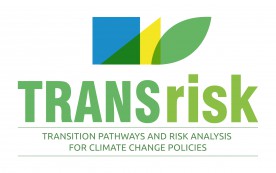 |
|
|
The main aims and objectives of TRANSrisk project are: To create a novel assessment framework for analysing costs and benefits of transition pathways, where uncertainty is at the heart of policy design rather than accounted for through sensitivity analysis at the end of the analysis. The innovative framework will integrate well-established approaches to modelling the costs of resilient, low-carbon pathways with a wider interdisciplinary approach including risk assessments. Designing a decision support tool for policymakers. A decision support tool should help policy makers to better understand uncertainties and risks and enable them to include risk assessments into more robust policy design. |
||
WISER
| WISER: Which Ecosystem Service Models Best Capture the Needs of the Rural Poor? | ||
|
It is widely acknowledged that poor rural communities are frequently highly dependent on ecosystem services (ES) for their livelihoods, especially as a safety net in times of hardship or crisis. However, a major challenge to the understanding and management of these benefit flows to the poor is a lack of data on the supply, demand and use of ecosystem services by the poor, particularly in the developing world where dependence on ES is often highest. Recent work suggests that errors associated with the commonly used global proxies (such as benefits transfer) are likely to be substantial and therefore confuse or worse, misdirect, policy formulation or management interventions (such as perverse subsidies). Given these issues, recent improvements in integrated modelling platforms - in some cases founded on desktop process-based models - which aim to provide improved and dynamic maps of current and future distributions of ES have much to offer ES-based poverty alleviation interventions and policy. While these next generation process-based models appear to have a role to play in ES-based poverty alleviation efforts, the level of sophistication and data needs that is required to deliver policy relevant information is poorly understood. It is, for example, unclear whether even the most sophisticated process-based biophysical model is able to provide sufficiently accurate information for regional- or local-scale policy decision making when based on globally available datasets. Similarly, there has been no attempt to quantify the degree to which disaggregation of beneficiaries is necessary within integrated modelling platforms to provide information on managing natural assets that is relevant to the poorest people. |
||

